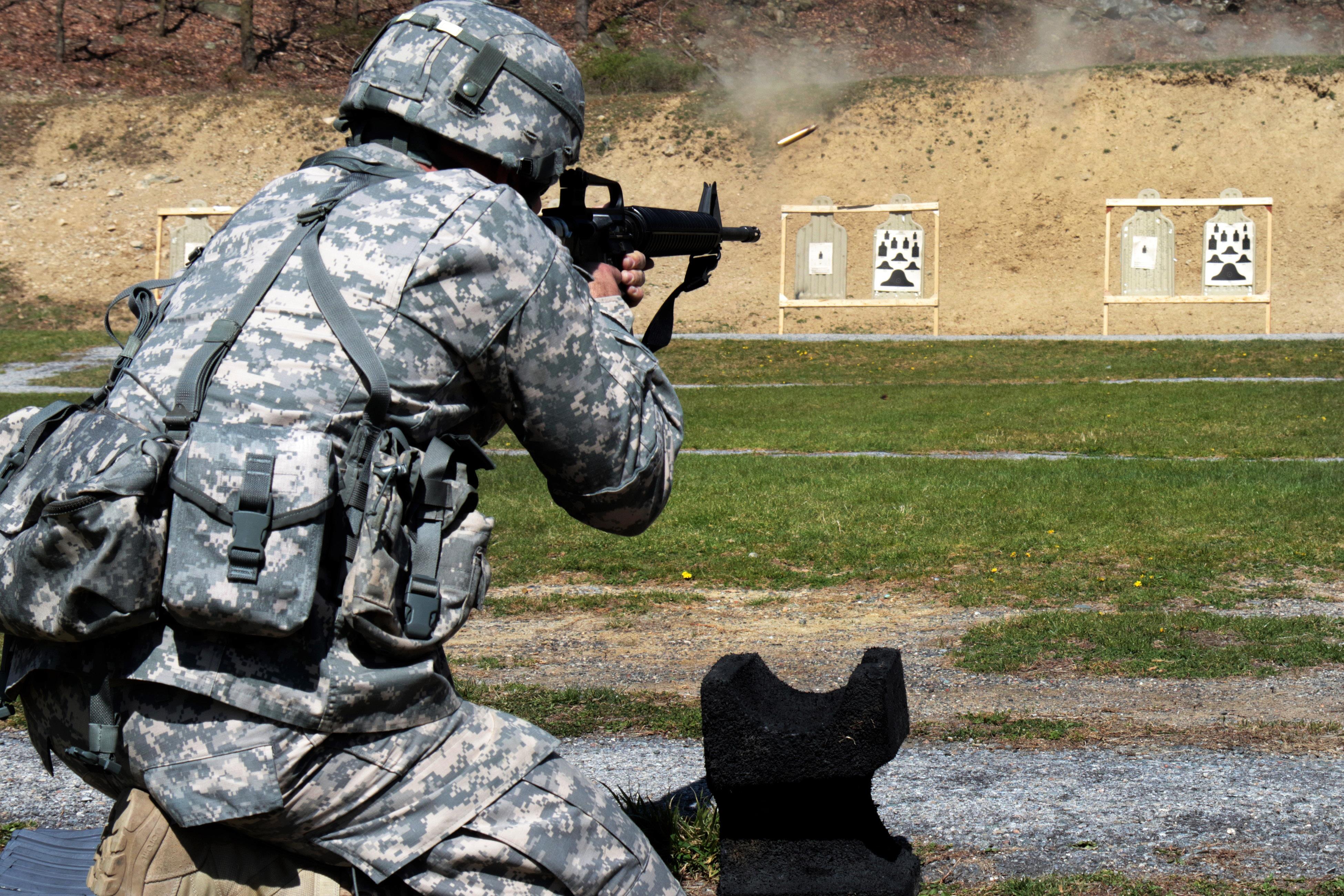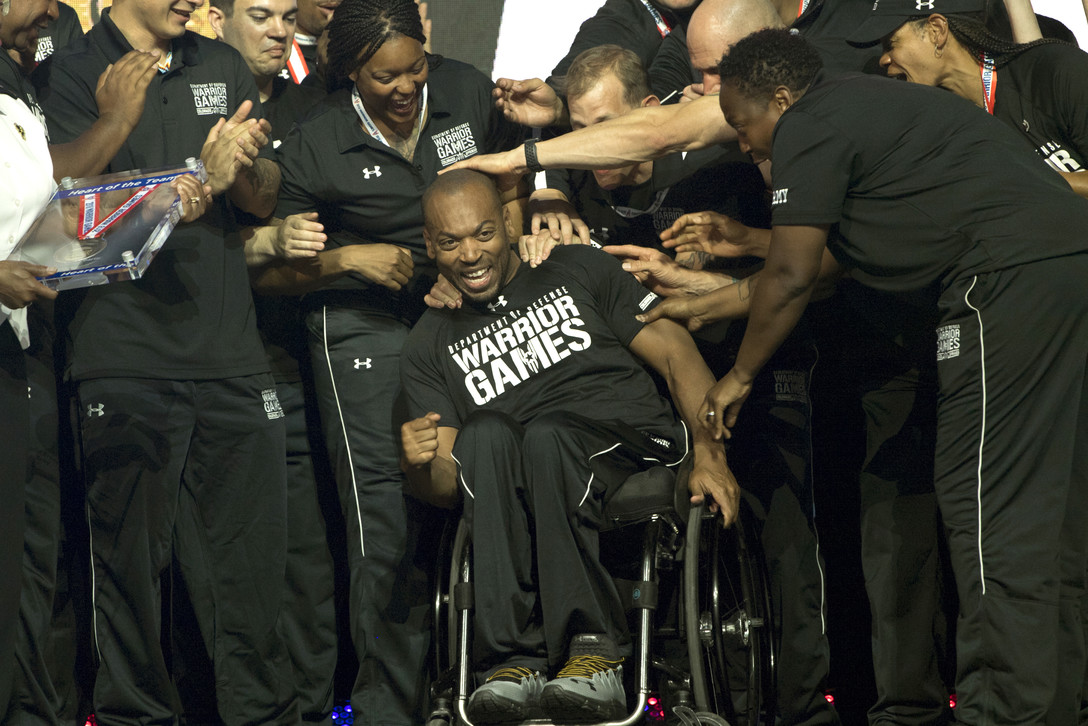
Soldier fires an M16 rifle from the kneeling position, April 21, 2016. New York National Guard photo by Army Sgt. Michael Davis
One thing I realized after I left the military is that it prepares us well for the gig economy. Even over a twenty-two year career, and working in a single career field, I had a dozen different jobs. Just about every two or three years, I was moving on and doing something else. Or moving on to somewhere else. While this kept things interesting, it also kept time horizons short.
At the operational level in the military, we were rarely thinking more than a year ahead. Many times, probably not more than six months; sometimes, I wasn’t thinking about things pas the next week. Sure, we had training and plans for a lot of different eventualities and scenarios, but really solving the problems or completing the missions took on an immediate focus. While there are obviously benefits to this…a driven, mission-focused attitude, and an impulse to get things done…it also got me in the habit of not looking at things with a long view. It got me in the habit of solving problems as they come up, rather than anticipating problems before they happen.
I realized that a lack of foresight and an impulse to solve immediate problems limits my effectiveness.
Fifty-Meter Problem Solving
I call it fifty-meter thinking. For those who may be reading this who haven’t served, when service members go to the rifle range, we fire at a series of targets of varying distances, from fifty meters to three hundred meters. Fifty meters is about half the length of a football field, and is the closest target. It may not seem very close, but if you consider that the target is simulating another human being who is advancing towards you with their own weapon, it’s close enough. The fifty meter targets are the easiest to hit, because they’re the closest; they’re the immediate problem.
The thing is, if the targets are problems, and we’re just focusing on the fifty meter problems, then the hundred meter targets are going to keep coming. And the one-fifty. And two hundred. The problems in the distance are going to become fifty meter problems soon enough, and they can get so numerous as to be overwhelming.
Sole Focus on Fifty-Meter Problems
When I was in the military, it was my job to solve the fifty-meter problems. Other folks were looking at the targets in the distance, and I was given the most resources and the best chances of success to get the close-up work done. Maybe, as I advanced in rank and responsibility, I moved into one hundred and two hundred meter thinking, setting up those in my unit to take care of the fifty meter targets, but it wasn’t much farther than that.
When I left the military, however, there wasn’t anyone who was planning for those distant problems. It was just me. Sure, I was working for organizations that helped with that kind of stuff, but when it came to solving life problems, the entire range of targets were my responsibility. Like many service members, when it came to long-term planning, it was my job.
The solution to solely focusing on fifty-meter problems and getting overwhelmed is to balance our attention on immediate problems and anticipating future problems. We have to make sure the bills are taken care of this month…but plan for three years from now too. We have to ensure that we are anticipating problems in the future as well as taking care of the things in front of us. It’s an acquired skill, and one that many are not used to.
Fifty-Meter Thinking in Solving Problems in the Veteran Community
But what if, collectively as a community, that’s what we’re trying to do…solve the fifty-meter problems in the veteran space? Twenty veterans a day take their own lives. So much effort is spent focusing on keeping veterans from engaging in suicidal behavior that we often fail to consider the things that come before it. According to Key Substance Use and Mental Health Indicators in the United States: Results from the 2017 National Survey on Drug Use and Health, an estimated 10.6 million adults had serious thoughts of suicide in 2017. As this editorial identifies, that’s greater than the population of the state of Georgia.
Solving the problem of veteran homelessness or veteran unemployment and underemployment can be looked at in the same way. The fact that the veteran and their family is homeless or unemployed is the fifty-meter problem. What can we do to keep them from getting that way in the first place? What about skills training, or increasing economic stability and self-sufficiency? Those can be considered one hundred and one-fifty meter problems, and if we address more of those, we will have less fifty-meter problems to consider.
Shifting Focus is Key
When we were on the qualification range, we had a term for the shifting focus needed to be effective: scanning your sector. It was a shifting focus from close up to far away, from left to right (because the targets didn’t always pop up in the same place). If we only looked for the three hundred meter target, we would miss the fifty. When addressing the problems in the veteran community, we need to take a same approach. Scan the sector. Consider the entire range of problems, not just the one that we’re good at or the one right in front of us. Partner with other organizations that are helping with the distant targets, if we’re focused on the immediate ones.
Maybe, that way, we can take care of all of the problems and not be so overwhelmed.
Do you want to help offset some of the costs of the Head Space and Timing Blog and Podcast? Want to show your appreciation and support? You can put some paper in the tip jar by going here or clicking the button below
 Want to learn more about veteran mental health? The first HS&T Book has recently been released in paperback. Click on the image to the left or this link to purchase the book. See what people are saying about it:
Want to learn more about veteran mental health? The first HS&T Book has recently been released in paperback. Click on the image to the left or this link to purchase the book. See what people are saying about it:
This compilation of Duane’s work is key and essential to anyone working with Soldiers and Veterans. Duane provides a senior NCO’s perspective with unmeasurable experience and knowledge on top of his natural gift for seeing numerous levels of humanality and the challenges faced by those who have served our country. I highly recommend it! – A.C.


